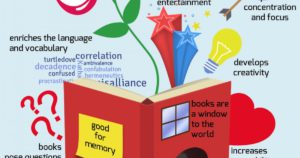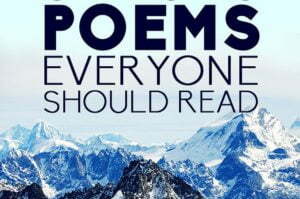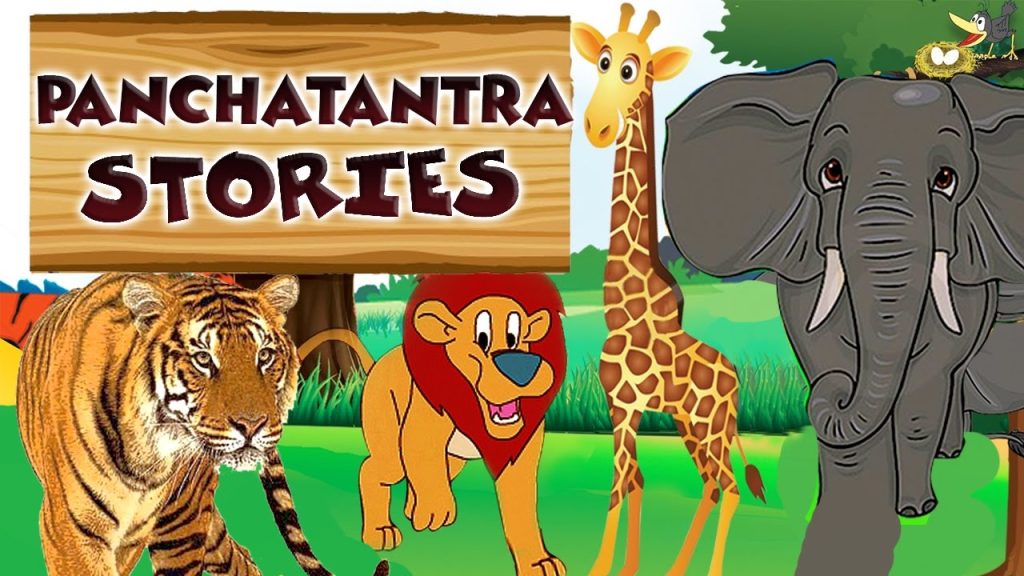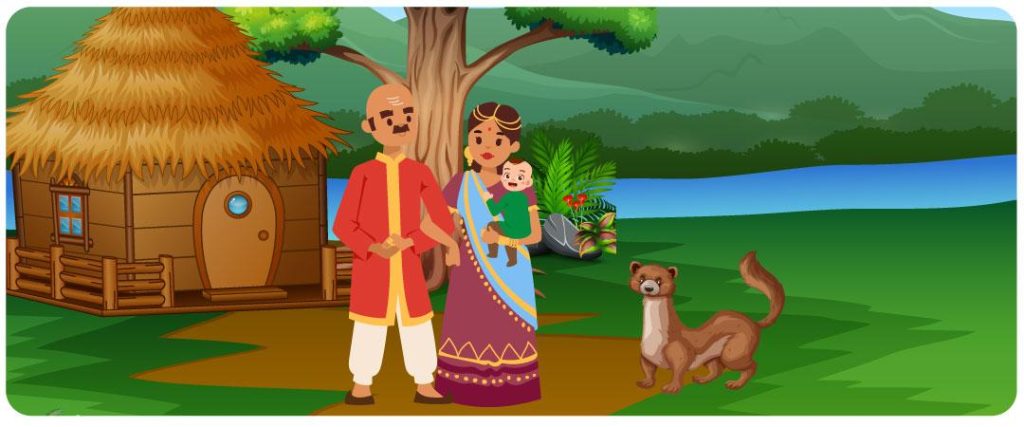Have you seen a beautiful garden with different varieties of flowers? After keenly observing a beautiful garden, one can realize that what makes a garden really beautiful is its diversity. In the same way, God has made every child differently. There are children with learning disabilities. One needs to understand that differences make this world wonderful and unique. Sometimes, it is difficult to disseminate this message among the readers. Hence, this becomes the sole duty on the part of Children’s writers to design books for children that suit children with learning issues. Books can truly teach to embrace one’s differences with pride. These books for children can celebrate differences and disabilities because they usually highlight characters who are different from (and in some cases similar to) the reader.
Children’s Literature as a Great Source of Wealth for Child Development
Children who identify with diverse cultures benefit from diversity in children’s literature because it helps them learn about themselves and feel like they have a valid place in the world. Without it, individuals may feel invisible or inferior to those about whom we read books more regularly. We tell individuals who don’t fit the template that they don’t belong when we stock bookstores and libraries with literature about the same type of person. This is only one of the reasons why variety in children’s literature is so important. Books have a significant impact on children who are just beginning to consider their place in society. You will have a harder difficulty establishing empathy for what others are going through if you never read literature about diverse experiences. Laid down below are some of the most interesting books for children of all time.
The Unmorrow Curse by Jasmine Richards
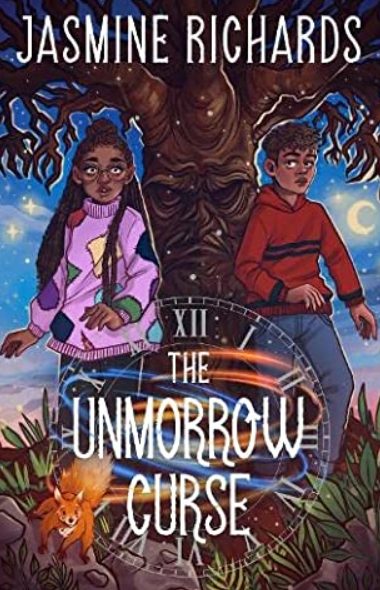
This book narrates the story of two friends who awaken a world of myth and magic in this epic middle grade fantasy perfect for fans of Rick Riordan. It’s not every day that you find a famous weather woman bound by magic to a tree deep in the woods. Or discover that the weatherwoman is in fact Sunna, the Norse Goddess of the Sun, and one of the seven day guardians who keep time in order. But that’s just what happens to new friends Buzz and Mari–and it’s only the start of their adventure. Now, as humanity are forced into a lockdown called the Unmorrow Curse and are forced to repeat the same Saturday over and over again, Buzz and Mari must journey to collect the Runes of Valhalla and awaken the other day guardians, before vengeful god Loki can get to them first.
Who Let the Gods Out? By Maz Evans
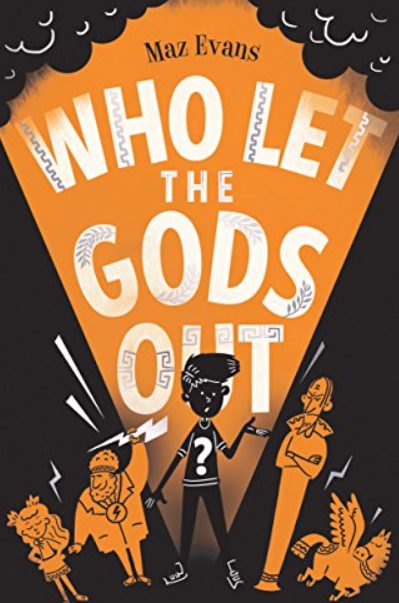
This is the first book in the hilarious bestselling WHO LET THE GODS OUT series, shortlisted for the Waterstones Children’s Book Prize! ‘I totally fell in love with Elliot and the gods, and I think you’re all going to love them too.’ ROBIN STEVENS ‘One of the funniest new voices in children’s literature. The laughs come thick and fast’ DAVID SOLOMONS When Elliot wishes upon a star, he doesn’t expect a constellation to crash into a dung heap on his family farm. The star is Virgo. She thinks she’s perfect. Elliot doesn’t. And together they release Thanatos, evil Daemon of Death … epic fail.
They need the King of the Gods and his noble steed. Instead, they get a chubby Zeus and his high horse Pegasus. Are the Gods really ready to save the world? And is the world really ready for the Gods? An exciting, laugh-out-loud hilarious and highly-acclaimed Percy Jackson-esque adventure. Shortlisted for both the Waterstones Children’s Book Prize and the Books Are My Bag Readers’ Award. Hilarious and heartfelt, Who Let the Gods Out? is the first in a series centred on the Olympian gods – perfect for fans of Greek mythology.
Fairy Unicorns Cloud Castle by Zanna Davidson

This book depicts the story about Zoe and her best friend Astra, the fairy unicorn, can’t wait for the Midsummer Festival on Unicorn Island. But the island is growing hotter by the minute and the flowers are all wilting…Has Shadow, the evil fairy pony, stolen the clouds? Fairy Unicorns is an exciting addition to Series Three of Usborne Young Reading, introducing children to original, illustrated fiction with easy reading texts. Series Three is for newly fluent readers who are ready for longer stories.
Now that we have seen some general children’s books depicting stories based on the theme of magic, demigods, and mythology, let us move on to books for children with learning disabilities. Before directly jumping on the books, we will try to understand what are some of the common learning disabilities in children and what kind of books should be written for them.
What are Learning Disabilities in Children?
Physical disabilities might make it difficult to complete tasks, but learning difficulties, especially in youngsters, can be equally stressful. Without any outward indicators or changes, children with learning difficulties frequently feel uneasy and embarrassed. Children who don’t have any may also be conflicted about a peer who struggles with reading or the kid who is often in trouble because they can’t concentrate. Educational novels can help children comprehend learning impairments, but it’s also crucial to have children’s books that help them identify with characters who are just like them.
Learning disabilities in children can be understood as a neurological disorder that inhibits the brain’s ability to send, receive, and process information is known as learning impairment. Reading, writing, speaking, listening, understanding mathematical ideas, and general comprehension may be challenging for a youngster with a learning disability. Dyslexia, dyspraxia, dyscalculia, and dysgraphia are all examples of learning difficulties. Each illness can coexist with the others. Learning difficulties are not caused by medical or mental illness, poverty, or cultural background; they also do not suggest that the child is weak or lazy.
7 Learning Disabilities
The seven diseases described below are considered unique learning disabilities by many mental health specialists, including the Learning Impairments Association of America. They distinguish Autism Spectrum Disorder (ASD) and Attention Deficit Hyperactivity Disorder (ADHD) as learning diseases that are related but separate.
- Dyslexia – A learning disorder characterised by difficulty in reading.
- Dysgraphia – An inability to write coherently.
- Dyscalculia – Severe difficulty in making arithmetical calculations.
- Disorder of auditory processing
- Disorder of language processing
- Learning issues that are not verbal
- Visual perceptual/motor impairment
Primary Books for Children with Learning Disabilities
- Out of My Mind ( 2010 ) by Sharon M. Draper
- Beautiful Child ( 2022 ) by Torey L. Hayden
- Wonder ( 2012 ) by R. J. Palacio
- Somebody Else’s Kids ( 1981 ) by Torey L. Hayden
- Look Me in the Eye : My Life with Asperger’s ( 2007 ) by John Elder Robison
Importance of Books for Children with Learning Disabilities
Books for children with learning disabilities can be very helpful in propagating optimistic messages regarding acceptance of one’s differences. Furthermore, these books portray characters with differences to which children with learning disabilities can relate with and they will also be able to think positively about themselves. Moving on, let us have a look at the books available for children with learning issues.
Thriving with ADHD Workbook for Kids by Kelli Miller
This book contains 60 fun activities to help children self-regulate, focus, and succeed. It also talks on the important issues like health and wellness for children. This interesting book will help your child in understanding and managing their ADHD with engaging activities for kids within the age of 7 to 12. It contains fun lessons for creating a morning routine, making a homework chart and will help them in expressing themselves when they are upset.
Just Ask!: Be Different, Be Brave, Be You by Sonia Sotomayor
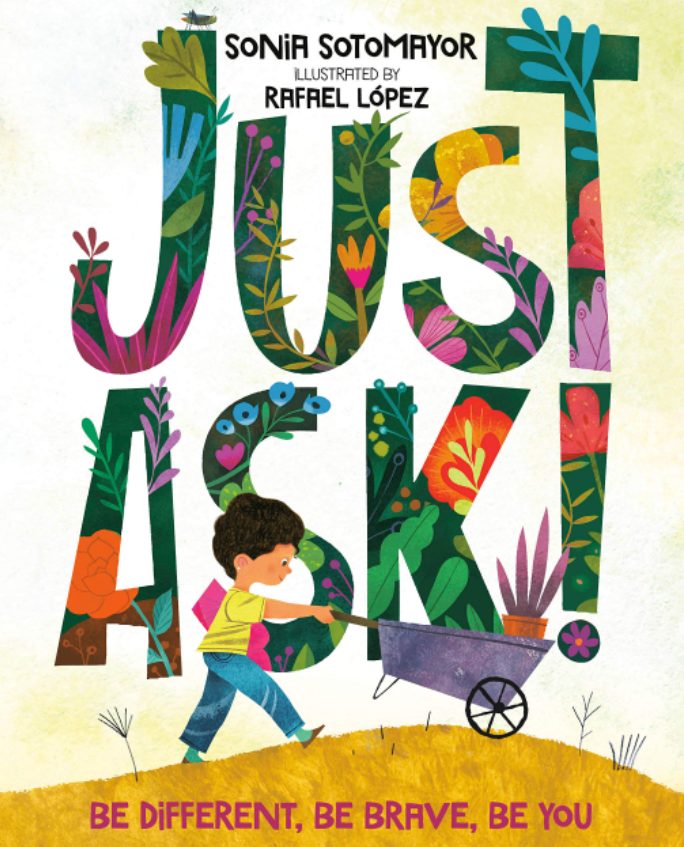
The Supreme Court Justice and award – winning artist, Sonia Sotomayor uses her own childhood experience with diabetes to craft this beautiful and inspiring children’s picture book. The writer depicts a story of children working to build a community garden which encourages kids to ask questions and learn how God has made everyone different and unique.
Holy Enchilada by Lin Oliver and Henry Winkler
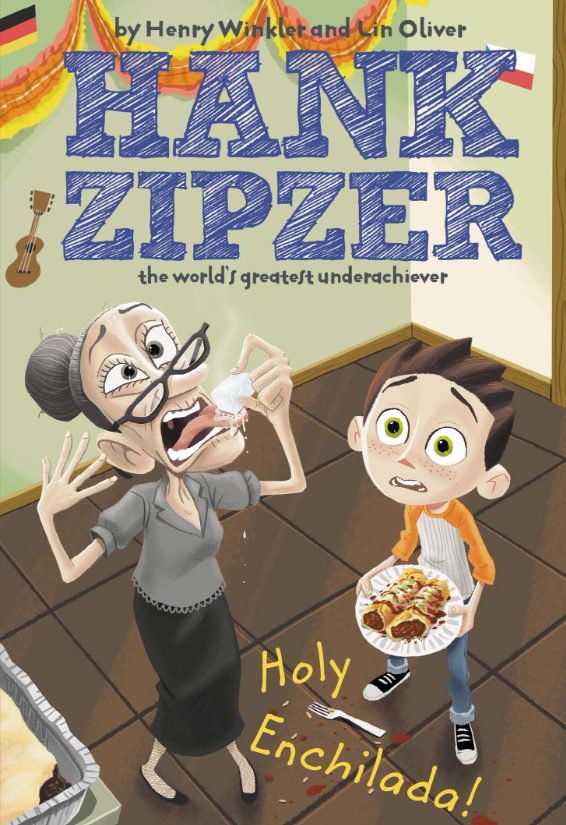
The Hank Zipzer series is a great one for children with learning disabilities, but ‘Holy Enchilada’ stands out as one of the best. This story is written by Henry Winkler (who battled dyslexia himself) and is about Hank making enchiladas for class, but they turn out way too spicy. He starts to panic that his disability may have caused him to use three cups of peppers. This book shows how children with disabilities are always conscious regarding their differences. The need is to engage them in different interesting tasks so that they can also enjoy and learn something new.
Just Juice by Karen Hesse

There are children who are immensely talented and creative, a learning disability can make them feel like their talents are worthless. In ‘Just Juice’, a sweet tomboy named Juice is great at dancing and in helping her father as a metalworker, but she has difficulty in learning to read, write, and spell. No matter how hard she tries, she feels like it isn’t enough, and those around her expect more because of her other talents. It is a sweet book that will make any kid with learning disabilities feel less alone. This book morally boosts the children to acknowledge their other strengths rather than their weaknesses.
Thank You, Mr. Falker by Patricia Polacco

Polacco is regarded as one of famous children’s book authors and ‘Thank You, Mr. Falker’ is a serious work of art. Even the littlest ones will enjoy this adorable story of an artistic girl named Trisha who excels in many areas, but can’t seem to figure out reading or writing. Her teacher, Mr. Falker, realizes she has dyslexia and goes above and beyond to help her. It’s perfect for children who feel alone and to remind them that there is a support system for them, no matter what. This book is also a guiding book for the teachers as it shows how teachers can become a great resource for children with learning issues.
Leo The Late Bloomer by Robert Kraus

Some learning difficulties make children feel like they are farther behind than their classmates, but ‘Leo The Late Bloomer’ can make them feel better. It is a darling story of a little tiger who isn’t reading, writing, drawing, or speaking according to his father who is always concerned for him. But with his mother’s confidence and reassurance, Leo realizes he can catch up. This book shows that encouragement is very essential in case of children with learning issues. We have to make them forget that they lack something because they will become disillusioned and will not be able to progress further.
Fish In A Tree by Lynda Mullaly Hunt
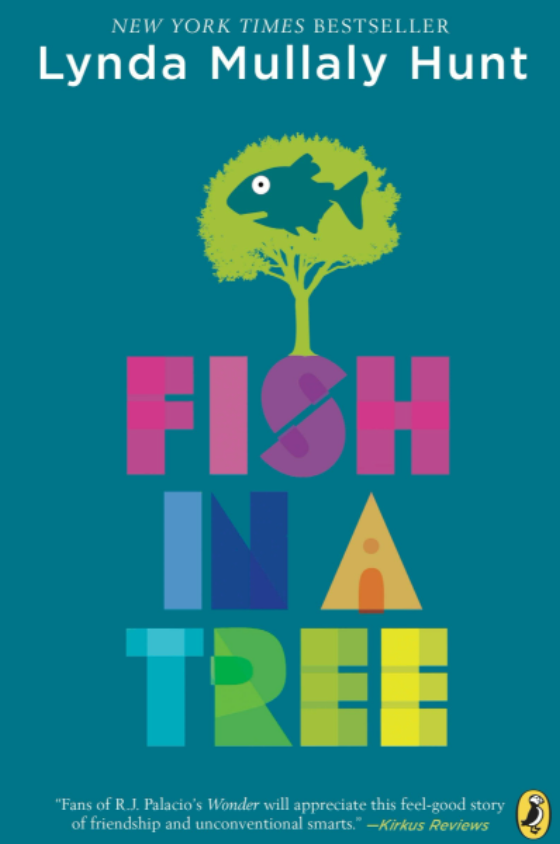
‘Fish In A Tree’ has a title that says it all — if you expect everyone to have the same skills and accomplishments, you might as well expect a fish to climb a tree. In this book, there is a child with learning issues named Ally who has dyslexia, but as she bounces from school to school, she learns that she doesn’t have to be disruptive just to hide her disability — it’s nothing to be ashamed about. This book delivers a very important message that parents should not have great expectations from their children, rather they should let them be free and allow them to prosper in their area of interest.
Tom’s Special Talent by Kate Gaynor
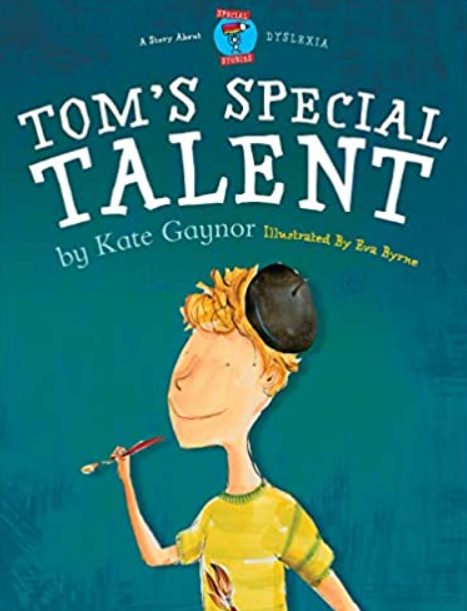
For some children, the pressure to be good at writing and reading can make them feel less than others but ‘Tom’s Special Talent’ will remind them that they have talents to be proud of, even if accomplishments in school are often measured by how well you can read and write. We need to stop judging the children on the basis of their marks and grades in their academics because that is not everything. Children must be appreciated for their unique skills and talents.
The Alphabet War by Diane Burton Robb

‘The Alphabet War’ represents a boy with dyslexia from kindergarten to fourth grade, showing how he learned to read despite the war of letters that happened every time he opened a page. It will give your kids plenty of reassurance that eventually they can overcome their difficulties. Students with learning issues only require our constant support and guidance to realize their true potential.
If You’re So Smart, How Come You Can’t Spell Mississippi? by Barbara Esham
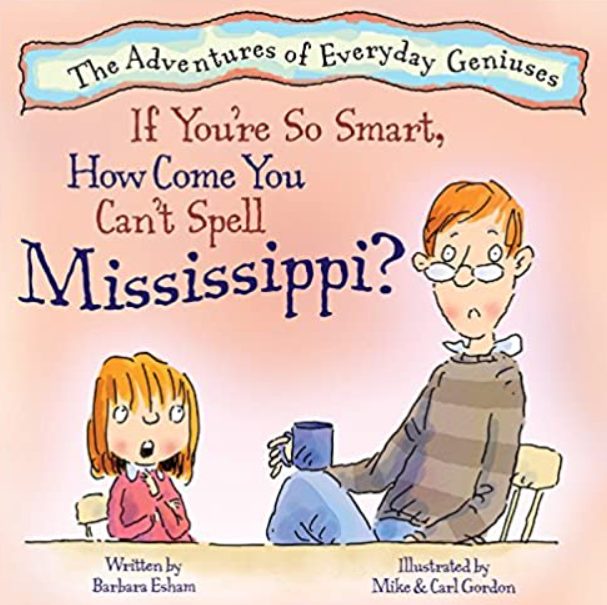
Kids with learning issues often wonder how their smart parents can’t help them with their needs. In ‘If You’re So Smart, How Come You Can’t Spell Mississippi?’, A little girl finds it difficult to understand how her father can be such an intelligent lawyer, but still has trouble helping her with her homework. The need is to place ourselves in our child’s position and cater to their requirements.
The Abc’s of Learning Issues (A practical guide for parents) by Dana Stahl M
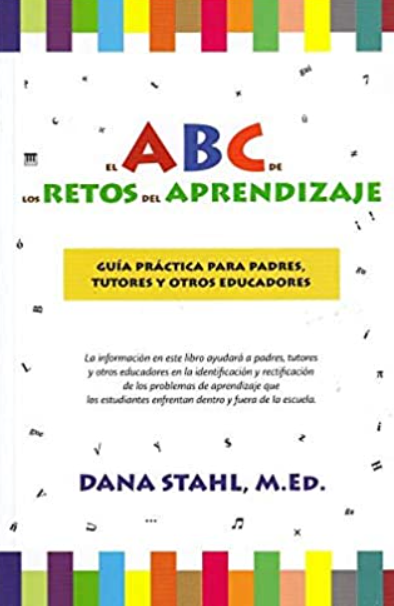
According to Special Needs Book Review, ‘The ABCs of Learning Issues’ is a helpful resource that “helps parents better understand and support their children’s learning issues and behaviours by providing real techniques to help children attain their full potential.” The book, which is available in both English and Spanish, assists parents and professionals in bridging the home-school divide by covering current educational subjects, providing a glossary of professional words, and identifying community organisations where parents may receive support.
Train the Brain to Hear by Jennifer L. Holland

This book was written for both parents and teachers, and the interesting thing is that it was written by a parent and teacher. The book explains the learning difficulties dysgraphia, dyslexia, dyscalculia, dyslexia, and auditory processing disorder. It also talks about how learning disabilities influence common areas including short-term memory, executive function, and understanding. Brain training and neuroplasticity strategies are used in the treatment program to foster the creation of brain connections that increase these skills. The strategies can also be used to help those with ADD/ADHD, severe brain damage, and stroke. One of the most difficult things for a parent to hear is that their child has a problem and that nothing can be done about it.
How to Help the Children with Learning Disabilities
Regardless of improvements in teaching quality and practical literacy, there will always be a few students who struggle to keep up with their peers’ learning and work completion rate. The real challenge is to find out the solution of how to help a student with learning disabilities at school. Many children who struggle to meet their school obligations get labelled as lazy or stupid. This can have a negative impact on their personality development. These children are often unaware that they have a learning disability that prevents them from achieving the desired results.
Consider how a child with dyslexia feels when children make fun of them in class for having problems reading aloud. Or how a youngster with ADHD feels when days of studying for an exam result in a low mark. These kinds of little setbacks and disappointments can have severe ramifications for an adolescent’s personality development.
It is up to teachers and parents to assist children with learning disabilities by structuring their learning process to make it as psychologically acceptable as possible. Each child is distinct in terms of character, aspirations, flaws, and virtues. When a disability is added to the mix, it becomes more difficult for instructors and parents to identify the best ways to facilitate learning and completion of school obligations/tasks. There are, however, some general/comprehensive supportive approaches that can be used with each particular child.
Ways to Help the Children with Learning Disabilities
- Develop a cordial relationship with the child.
- Emphasis should be given on efforts and not on the results.
- Child’s strengths must be focused and not their weaknesses.
- Provide them with examples of great personalities who suffered with similar learning disabilities.
- Regular motivation and a check on their emotions.
- Nourishment of a child’s intellectual curiosity.
- Teach the child by devising games and activities.
“Everyone is a genius,” Albert Einstein once said. But if you assess a fish by its ability to climb a tree, it will believe it is stupid for the rest of its life”. This beautifully summarises the multifaceted nature of human intelligence. With this quotation in mind, we must recognise a child’s talents and, through dedication to growing those strengths, develop extraordinary skills that will allow the child to stand out among their peers.
For example, if a child has dyscalculia but is gifted in kinesthetic activities such as acting, we will focus on improving kinesthetic activities such as rhetoric, reciting, and dramaturgy to achieve the best results. Children with learning disabilities frequently struggle in and out of the classroom. Teachers and parents must consequently keep an eye on the child’s emotional state. When a child’s emotions are low, the easiest method to motivate them is to talk to them. There are various ways to use dialogue to help a youngster overcome a problem. For example, partially deconstruct the negative scenario. This method will enable you to perceive the primary causes of the initial quarrel and comprehend what occurred.
Provide them with personal examples. Any advice is helpful, but it’s ideal if it comes from someone who has successfully navigated a circumstance comparable to their own.
Final Thoughts
More than books, the need is to create a healthy environment where differences are celebrated rather than mocked at. Special education teachers must explore the books for children with learning disabilities in order to apply their content as techniques or methods for dealing with children with learning disabilities.
All children require love, encouragement, and support, and positive reinforcement can help children with learning difficulties develop a strong sense of self-worth, confidence, and the resolve to persevere even when things are difficult. Remember that you’re looking for ways to help children with learning difficulties help themselves when you’re looking for solutions. Your responsibility as a parent is to provide your child with the social and emotional tools they need to overcome obstacles, not to “fix” the learning handicap. Overcoming a hurdle like a learning disability can help your child develop stronger and more resilient in the long term. Children with learning difficulties require extra love, encouragement, and support.
Share with your friends


